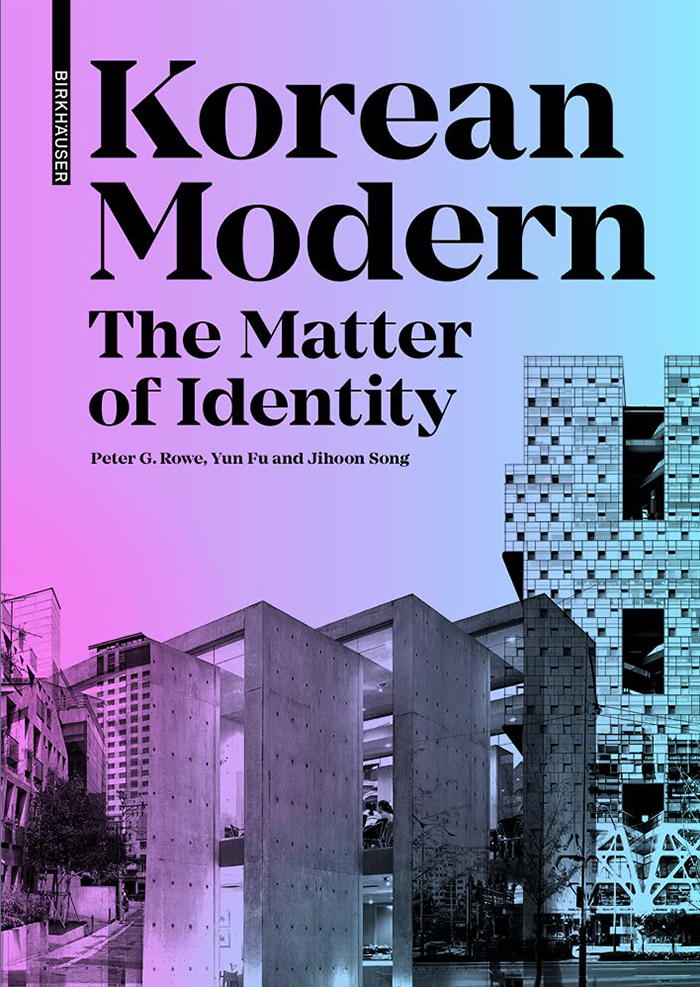Korean Modern: The Matter of Identity

Authors: Peter G. Rowe, Yun Fu and Jihoon Song
Birkhἂuser, 2021.
This book is about the formal identity of modern architecture in Korea and more recently in South Korea. This development is closely tied to the dramatic transformations that occurred since the late 19th century, when the reign of the Joseon Dynasty, which had dominated the country for half a millennium, came to a close. The book then traces the coming-in-to-being of unique Korean architectural modernism through four decades of Japanese colonial rule, several phases of authoritarian government, and stabilization since the founding of the Sixth Republic. Architectural analyses range from the Hwaseong Fortress to 21st century constructions and is well illustrated. Throughout, the focus is on the formation of a specifically and observable Korean modernism. An appendix includes biographical descriptions of major architectural figures.
Contents.
- Introduction
On Modernity and a Path-Dependent Turn
On Koreaness: Han Minjok and Reaching Out
Organization of the Book. - Movement in the Late Joseon Dynasty
King Jeongjo Proceeds to Hwaseong Fortress
The Geojunggi and Architectural Depiction
Consolidation of Power Towards the Gwangmu Reforms
The Gyeongbokgung Restoration
Seokjojeon. - Under the Thumb of Colonial Rule
Three Phases of Colonial Rule
Architectural Symbols of Colonial Rule
Places of Worship in the Manner of the West
Two Department Stores and Modernity
A Modernism of the East - The Generals, Park’s Regime and Followers
The Rise of Chung-hee Park
The Two Architects Kim
Re-Interpreting and Sublimating Tradition
Employing Modern Technology
Pulling Up with the Times - Modern Democracy and the 4.3 Group
The Building of a New Korea
The Beauty of Poverty and Structuring Emptiness
Making Frames, Walls and Voids
Architectural Essences and Themes. - The Sixth Republic and Returning Contemporaries
Spatial Recoveries
Spatial Flows
Others
Reaching Cultural Potentials - Koreaness: Some Observations
Traditional Tropes
Efficient Project Delivery
Self-Reference
Consolidating Identity